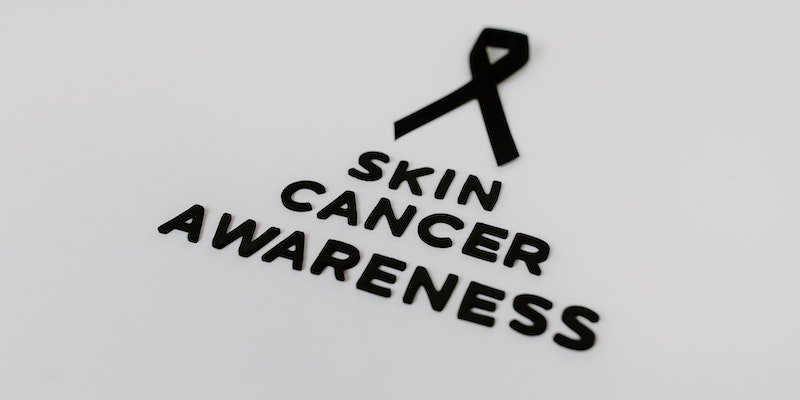Debunking Myths: Dermatologists Address if Psoriasis is Contagious
Oct 01, 2023
Is psoriasis contagious? People who initially experience this persistent skin problem often ask this. Psoriasis, which creates red, scaly areas on the skin, especially on the face, has many myths. Let’s discuss the more common of them.
Understanding Psoriasis
Understanding its nature and origin is essential before delving into whether psoriasis is contagious. The immune system targets healthy skin cells in psoriasis, causing fast and aberrant cell development. Red, inflammatory patches with white scales form on the psoriasis face, elbows, knees, and scalp when these cells accumulate.
Is Psoriasis Contagious? Dermatologists Weigh In
When inquiring, "Is psoriasis contagious?" It's essential to understand the stance of medical experts on this matter. Dermatologists specializing in skin conditions have consistently conveyed that psoriasis is not contagious. Psoriasis is caused by an immune system breakdown, unlike infectious diseases transferred by bacteria, viruses, or fungi.
Psoriasis occurs when the immune system mistakenly attacks healthy skin cells, causing rapid surface cell growth. This aberrant growth cycle causes thick, red, and scaly psoriasis patches. Psoriasis cannot be spread through touch, bodily secretions, or other physical contact. Dermatologists emphasize separating infectious skin illnesses from autoimmune problems like psoriasis to avoid misinformation and anxiety.
Psoriasis Face: A Closer Look
Observing psoriasis on the face, or "psoriasis face," can be incredibly distressing due to its apparent nature. This visibility often catalyzes social stigma, misconceptions, and an unfounded fear of contagion. Psoriasis face is defined by the appearance of red, inflamed, and scaly patches prominently around the forehead, eyebrows, cheeks, and even the chin. The skin in these areas may also be susceptible, adding to the discomfort of those affected.
While psoriasis face is not contagious, managing this manifestation of psoriasis demands a specialized and careful approach to alleviate symptoms and improve the quality of life for individuals. Using gentle skincare products, avoiding known triggers, and adhering to prescribed treatments are integral to managing the condition effectively. Addressing the psychosocial aspects, including the impact on self-esteem and mental well-being, is vital in providing holistic care.
The Origins of Misconceptions: Why the Confusion?
Misconceptions regarding psoriasis, mainly whether it is contagious, stem primarily from a general lack of awareness and understanding of the condition. The prominent and sometimes distressing appearance of symptoms, such as those observed in psoriasis face, can understandably lead to apprehension and fear. The sight of inflamed, scaly skin can be alarming to those unfamiliar with the condition, fostering misconceptions about its nature.
Furthermore, throughout history, various skin conditions, particularly those with visible symptoms, have been wrongly associated with contagion. This historical backdrop of associating visual skin abnormalities with infectious diseases contributes to the prevailing misconceptions surrounding psoriasis. The confusion is often exacerbated by the general public's limited knowledge of autoimmune diseases and how they differ fundamentally from infectious diseases.
Dermatologists’ Insight: Dispelling the Myths
Dermatologists are responsible for psoriasis treatment, public education, and myth debunking. Dermatologists seek to create an environment of empathy, compassion, and accurate knowledge for psoriasis patients through awareness campaigns, educational seminars, and patient counseling.
Dermatologists blame disinformation and a lack of knowledge for the false idea that psoriasis is contagious. Dermatologists strive to dispel these myths by providing correct information regarding psoriasis' autoimmune nature, development, and symptoms. Psoriasis is non-contagious. Thus, educating the public about it reduces stigma and promotes awareness and compassion.
Managing Psoriasis Face: Specialized Care

Managing psoriasis on the face demands a tailored approach due to the unique sensitivity of facial skin and the pronounced psychological impact of its visible symptoms. A holistic approach, balancing both physical and emotional well-being, is crucial. Dermatologists advocate for a regimen that includes gentle skincare routines to prevent irritation, the application of topical treatments to alleviate inflammation, and the meticulous avoidance of known triggers.
Given the facial skin’s delicate nature, choosing the right skincare products becomes paramount. Irritant- and fragrance-free mild cleansers and moisturizers are advised. In addition to skincare, limiting stress, alcohol, smoking, and some drugs might reduce flare-ups.
Phototherapy and systemic medicines may be recommended for severe and chronic psoriasis. These treatments aim to modulate the immune system and reduce inflammation, relieving the chronic cycle of skin cell buildup and shedding. The treatment choice is carefully customized to each individual’s unique condition, considering the severity of symptoms, overall health, and lifestyle considerations.
Psoriasis Self-Care: Empowering Individuals
Empowering individuals with the knowledge and strategies for psoriasis self-care is a fundamental aspect of managing this chronic condition. A holistic approach to psoriasis self-care includes physical, emotional, and lifestyle issues. Self-care involves living a balanced and healthy lifestyle, relaxing, moisturizing, and avoiding stressors.
Patients are encouraged to actively participate in their care, educate themselves, and seek help from healthcare experts, support groups, and internet forums.
Building a supportive network can significantly aid in navigating the challenges and emotional toll associated with psoriasis. The exchange of experiences, tips, and encouragement within these communities fosters a sense of solidarity and understanding, contributing to better mental and emotional well-being.
Combating Stigma: A Collective Responsibility
The stigma attached to psoriasis, and more so to psoriasis face can be distressing and isolating for those affected. As a society, combating this stigma is a collective responsibility that begins with education and awareness. Dispelling myths, particularly the misconception that psoriasis is contagious, is crucial in fostering a supportive and inclusive environment.
Educational initiatives, awareness campaigns, and open dialogues can contribute to breaking down barriers and promoting empathy. Understanding individuals' psoriasis challenges can make society more accommodating and supportive. An inclusive community is founded on compassion and understanding, and we all have a role in treating psoriasis patients with dignity and respect.
Treatment Innovations
Dermatology is constantly evolving, and psoriasis treatment advances give millions hope.
Among the most promising developments are biological therapies. These treatments target specific pathways in the immune system, aiming to reduce inflammation and halt the rapid skin cell turnover characteristic of psoriasis.
Biologics have helped moderate to severe psoriasis patients who had trouble with conventional therapy. Research and clinical trials are discovering new chemicals, mechanisms of action, and treatment methods, enabling tailored and effective medicines.
Psoriasis study shows how scientists, physicians, and patient advocates work to improve outcomes for this chronic condition. The future holds promise, with the potential for novel therapies and cures.

Patient Perspectives: Living with Psoriasis
Living with psoriasis, particularly psoriasis, presents many physical and emotional challenges. However, the narratives of those affected are often marked by resilience, empowerment through knowledge, and the invaluable role of support networks. Patients’ stories highlight their journeys of navigating misdiagnoses, finding effective treatments, and coping with the psychosocial aspects of psoriasis.
Sharing their experiences and ideas, psoriasis patients can dispel myths and promote empathy. Their voices demonstrate the power and tenacity of each person with this affliction. The collective narrative underscores the importance of support, education, and advocacy in managing psoriasis and building a more inclusive and understanding community.





